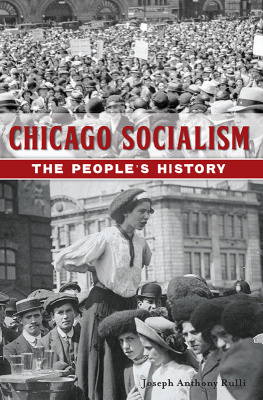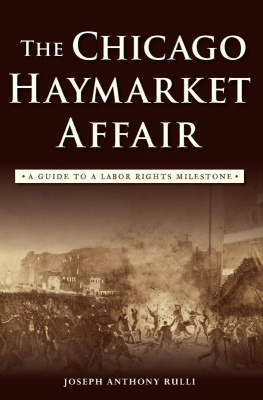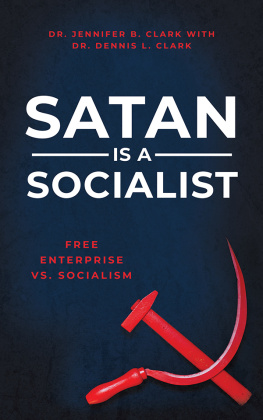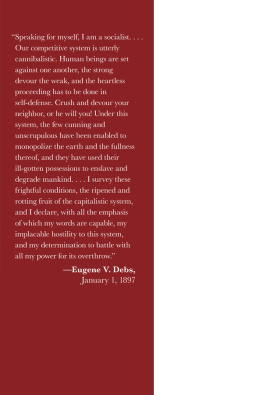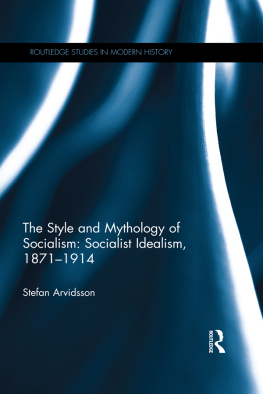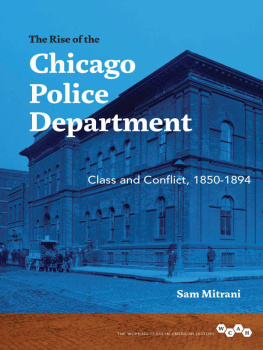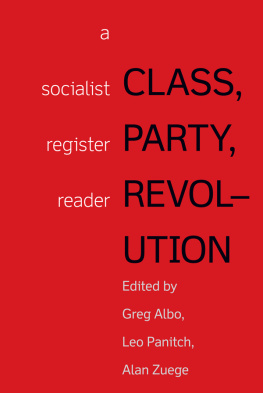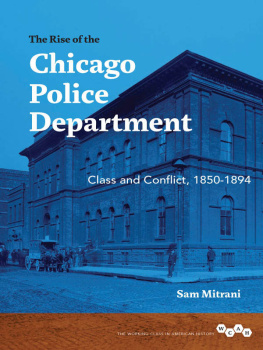


Published by The History Press
Charleston, SC
www.historypress.net
Copyright 2019 by Joseph Anthony Rulli
All rights reserved
Front cover, top: Chicago Teachers Union demonstration, 1930s. Courtesy of the Chicago History Museum; bottom: A girl making a speech in downtown Chicago. Courtesy of the Chicago History Museum (CHM: i003200).
First published 2019
e-book edition 2019
ISBN 978.1.43966.772.9
Library of Congress Control Number: 2019939741
print edition ISBN 978.1.46714.126.0
Notice: The information in this book is true and complete to the best of our knowledge. It is offered without guarantee on the part of the author or The History Press. The author and The History Press disclaim all liability in connection with the use of this book.
All rights reserved. No part of this book may be reproduced or transmitted in any form whatsoever without prior written permission from the publisher except in the case of brief quotations embodied in critical articles and reviews.
[The Ghost said,] If he be like to die, he had better do it, and decrease the surplus population.
Scrooge hung his head to hear his own words quoted by the spirit, and was overcome with penitence and grief.
Man, said the Ghost, if man you be in heart, not adamant, forbear that wicked cant until you have discovered What the surplus is, and Where it is. Will you decide what men shall live, what men shall die? It may be, that in the sight of Heaven, you are more worthless and less fit to live than millions like this poor mans child. Oh God! To hear the Insect on the leaf pronouncing on the too much life among his hungry brothers in the dust!
Charles Dickens, A Christmas Carol, Stave III (1843)
[Behold] a city for sale and doomed to destruction, if it should find a buyer.
Sallust (8635 B.C.E.), The Jugurthine War, Book 35
DEDICATION
This book is dedicated to the memories of
Felix Salvatore Rulli (19312017)
and
Catherine Marie (Palmero) Rulli (19302018)
Children of immigrants, lifelong laborers in the workplace and loving parents and grandparents in our family.
It is also dedicated to all laborers throughout the centuries and millennia across the globe, nameless to history, who have struggled for a more equitable and just world; to all who have suffered at the hands of their fellow human beings for speaking out in defense of others and who have been relegated to the tombs of the unknowns, the desaparecidos, the disappeared ones; and to the refugee, the enslaved, the burned, the butchered as victims of totalitarianism, racial and economic exploitation, fear and rabid nationalism. It is their story, here in small, that is told: a voice to the voiceless, defying language barriers, that speaks for them and for those who still suffer today, wandering homeless on their own planet, and all, sadly, who still suffer this fate. And to all those who build bridges and tear down walls while there is still time to change the pattern.
CONTENTS
LIST OF PHOTOGRAPHS
ACKNOWLEDGEMENTS
A book such as this comes about through hard work, diligence and a near-obsessive desire to present something dear to the heart. However, it is not created by the writer out of nothing. Others, in decades prior, have set about in research, writing articles and making charts and graphs to which the author has access. Many more people, in the present, directly affect the writers success.
Firstly, I give my heartfelt thanks again to my family; to Cathy, Bill, Michael and Samantha Kazmierczak; and to Terri Rulli, with whom I share the most-common story. By association and blood, I also owe great gratitude to my extended family and all the people of South Bend, Mishawaka and Elkhart, Indianaimmigrants and descendants of immigrants who hold more in common with those who still come, the refugees and caravans of today, than some may realize.
As a lifelong lover of history, bibliophile and second-career writer, I thank the teachers (especially my English, social studies and theater guides), as well as the staffs of St. John the Baptist Catholic School, the Alexis Coquillard Public School Library, St. Josephs High School, Holy Cross College, the University of Notre Dame and St. Meinrad School of Theology.
To the staff and supporters of the Chicago History Museum, especially in the Research Center, who were very attentive to me in my sometimes twice-a-week visits into the directories, microfilms and maps: Ellen Keith, Leslie Martin, Michael Featherstone, Gretchen Neidhardt, Ariel Robinson and Noel Dwyer. Many thanks also to Angela Hoover and the Rights and Reproduction Department for their time, patience and good humor and to those who work with the photographic archive. To the staff of all the departments of the Newberry Library, among them Maggie Cusick, John Powell, Caleb Britton, Rosie Frehe and Patrick Reilly, I give an abundance of thanks for your professionalism, dedication and passion for the preservation and exhibition of the good, the bad and the ugly of the greatest city in the world.
To my friends near and far who have suffered my history (and histrionic) obsessions or babbling on with the details of this work during its birthing: your enthusiasm and curiosity, again, have been energizing and spurred me on to complete the project.
A large amount of my gratitude is to the city of Chicago and surrounding municipalities and all their connected services, particularly the Chicago Transit Authority and Metra lines. I have been a regular passenger of trains and buses since arriving here in the winter of 2006 and can say that using public transportation is second nature for me. The economic benefits, the ease of travel and my always-spicy fellow riders have allowed me to get to where I need to be in a timely (most of the time) and safe manner. This book would be a lot different, a lot less accurate and a lot duller had I not been able to go and check out sites firsthand whenever the whim struck. To the Chicago Police Department, for their daily sacrifices and risks taken for public safety and for the ongoing efforts of those working with communities to find constructive solutions to our problems.
To the Edgy Writers of the bimonthly workshops, my (almost) speechless gratitude for your honest input, critique and support in the fictional and nonfictional parts of my world. Your presence with me at our gatherings and at my individual readings and play performances heartens me constantly. And, by extension, my thanks go to the staffs at Zanzibar Caf and Nookies in Edgewater, without whom our meetings would be drier and a bit more tasteless.
To my financial and techno-teams in the digital and corporeal realms: my photographer, Nathanael Filbert, and his assistant Brad Seifert; my web designer, MacDaniel Sullivan; and my financial guru, Mark Willisall gratitude pours out to you for the selfless sharing of your gifts with me. Without your work, this book would be greatly impoverished.
To the staff at The History Press for their belief in and excitement for this project, most of whom I have not met in person. I give most heartfelt thanks to Ben Gibson, my commissioning editor, for his passion about the material and for the guidance he has provided me in this, our second endeavor; and to my copy editor, Sara Miller, for her eagle eyes, wit and thoughtfulness.
Next page
